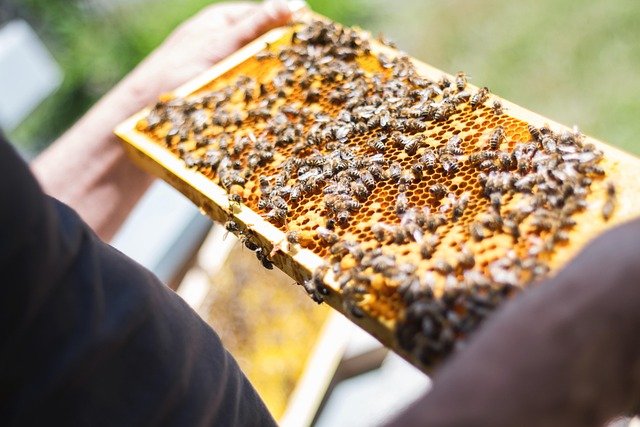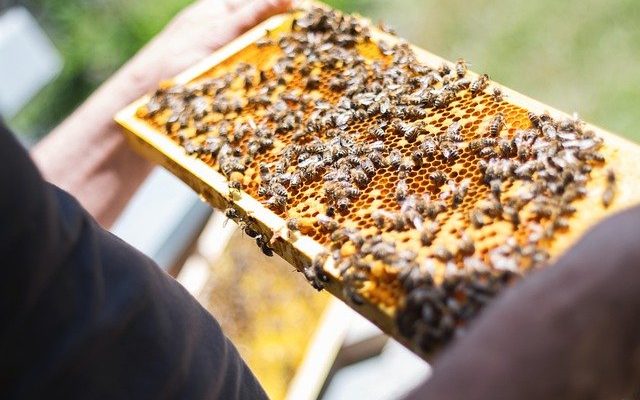
You don’t need to be a scientist or a farmer to start beekeeping; you just need to be curious and willing to learn. The journey can be rewarding and fun, whether you plan to harvest your own honey, help the environment, or just enjoy observing these fascinating insects. So, grab your favorite mug of coffee and let’s dive into the buzzing world of bees!
What Is Beekeeping?
Beekeeping, also known as apiculture, is the practice of maintaining bee colonies in hives. These hives provide a safe habitat for bees to live, work, and produce honey. Beekeeping isn’t just a hobby for sweetener enthusiasts; it can also play a key role in supporting the environment. Bees are essential pollinators, meaning they help plants reproduce by transferring pollen from one flower to another. This process is vital for many crops and wild plants.
Setting up a hive can feel intimidating at first, but think of it as creating a home for bees. In essence, you’re providing shelter, resources, and protection so they can thrive. Depending on your location, you might have to check local regulations, as some areas have specific requirements for keeping bees. The most common type of honey bee kept by hobbyists is the Italian bee, known for their gentleness and productivity.
Benefits of Beekeeping
You might be surprised by just how many benefits come with keeping honey bees. Here are a few that stand out:
- Honey Production: One of the main reasons people start beekeeping is for the delicious, golden honey. Fresh honey straight from the hive tastes different than store-bought varieties—it’s richer and often has unique flavors based on the flowers the bees visited.
- Pollination: Bees are vital for the pollination of many plants, including fruits, vegetables, and flowers. By keeping bees, you can boost the health of your garden and contribute to local food systems.
- Environmental Impact: Supporting bee populations is crucial for conserving biodiversity. With many bee species facing threats from habitat loss and pesticides, your backyard hive can be a haven for them.
- Educational Experience: Beekeeping offers a hands-on learning experience. You’ll gain knowledge about bees, nature, and ecosystems, which can deepen your appreciation for the environment.
Beekeeping can also be a wonderful way to connect with your community. Local beekeeping clubs often offer workshops and a network of support for newcomers. So, whether you’re after honey, helping the environment, or just looking for an interesting hobby, there’s a lot to gain from this sweet endeavor.
How to Get Started with Beekeeping
Getting started in beekeeping doesn’t require a huge investment, but it does require some preparation. Here’s a straightforward roadmap to help you launch your beekeeping journey:
1. Research and Learn: Familiarize yourself with bees and how they live. There are plenty of resources available, including books, online courses, and local workshops.
2. Find a Suitable Location: Ensure you have enough space and sunlight for your hives. Ideally, a sunny spot with nearby flowers is perfect for bees.
3. Invest in Equipment: You’ll need a few essential items like a hive, smoker, bee suit, and tools for harvesting honey. There are many beginner kits available that include everything you need to get started.
4. Choose Your Bees: You can order bees from local suppliers. A common choice is a package of Italian honey bees because they are friendly and productive.
5. Set Up and Maintain Your Hive: Once you have your equipment and bees, it’s time to set up your hive. Regular maintenance, including checking for disease and pests, is key to a healthy bee colony.
Remember, patience is vital here. Bees need time to adjust to their new home and start producing honey, so don’t get discouraged if things don’t go perfectly at first. With a little time and practice, you’ll be well on your way to becoming a successful beekeeper.
Common Challenges in Beekeeping
Every hobby comes with its challenges, and beekeeping is no different. Here are a few hurdles you might encounter and how to handle them:
1. Pest Management: Varroa mites are one of the most common threats to honey bees. These tiny parasites can weaken or kill bees if left unchecked. Regular monitoring and employing Integrated Pest Management (IPM) strategies can help keep your hive healthy.
2. Weather Conditions: Bees are sensitive to weather changes. In extreme heat or cold, they can become stressed, which affects their colony’s health. Providing adequate ventilation in the hive and ensuring they have enough food during harsh seasons are essential steps to take.
3. Swarming: Sometimes, a colony decides to split and create a new one. This is a natural process, but swarming can reduce your honey production. To prevent it, ensure your hive is spacious enough and consider splitting the hive proactively if they start to grow too large.
4. Time and Commitment: Beekeeping requires regular checks on your hives and ongoing education. Life can get busy, and it’s important to find time to dedicate to your bees. Setting a schedule can help ensure your bees get the care they need.
While these challenges might seem daunting, many beekeepers find that they can be managed with experience and a bit of forethought. The rewards often outweigh the challenges, making it all worthwhile.
Making Your Beekeeping Experience Enjoyable
Beekeeping can be an incredibly fulfilling experience, especially if you embrace the journey. Here are some tips to make it even more enjoyable:
– Join a Local Club: Engaging with fellow beekeepers can provide essential support and troubleshooting tips. Sharing stories and learning from others can make the process more enjoyable and less lonely.
– Document Your Journey: Keep a journal of your experiences. Note the bees’ behavior, honey production, and any challenges you face. This can be a great way to track your growth and learn from past mistakes.
– Experiment with Different Hive Types: There are various types of hives, like Langstroth and Top-Bar hives. Trying out different methods can keep things fresh and exciting.
– Harvest Honey with Friends: When it’s time to collect honey, invite friends or family to help out. It turns a chore into a fun event, and sharing the fruits of your labor is always a blast.
Remember, beekeeping is as much about the journey as it is about the honey. Enjoy learning, teaching others about bees, and soaking in the beauty of nature.
Diving into the world of beekeeping can feel a bit overwhelming at first, but it’s also one of the most rewarding hobbies you can undertake. By keeping honey bees, you’re not just creating a source of delicious honey; you’re supporting the environment and becoming part of a larger community dedicated to nurturing these incredible creatures.
From the joys of harvesting your first batch of honey to the satisfaction of knowing you’re helping preserve bee populations, keeping bees can bring a sense of fulfillment you might not expect. So, whether you’re looking for a new hobby, an adventure, or a way to connect with nature, beekeeping might just be the buzz you need in your life. Happy beekeeping!

